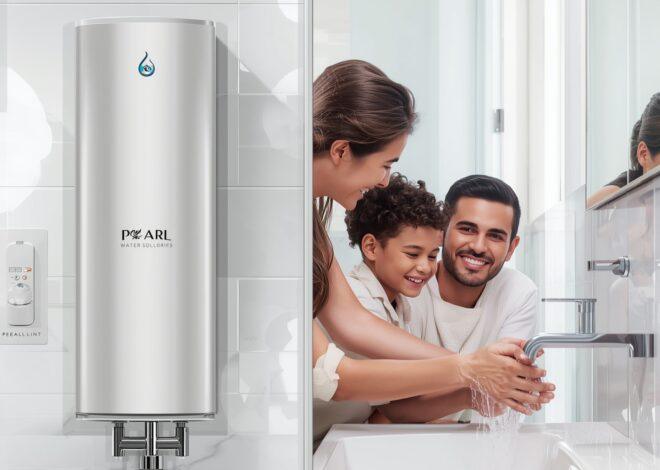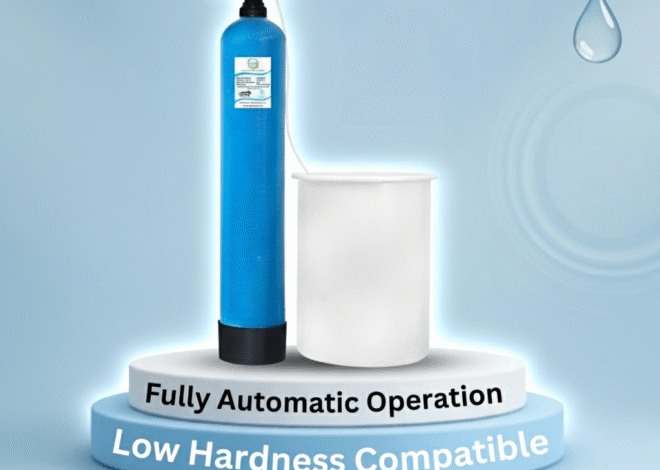Signs You Have Hard Water - Do You Need a Water Softener?
Learn the signs of hard water and why you need a water softener. Protect your skin, hair, clothes, and appliances with soft water today.
📑 Table of Contents
Introduction: Hard Water Is a Silent Problem
What Is Hard Water?
Common Signs You Have Hard Water
How a Water Softener Solves These Problems
Do You Really Need a Water Softener?
Types of Water Softeners
How to Select the Right Water Softener
Why Choose Pearl Water Technologies
FAQs
Conclusion
Introduction: Hard Water Is a Silent Problem
Most households in India face hard water issues without realizing it. Hard water contains excess calcium and magnesium that damage skin, hair, clothes, and appliances. Installing a water softener can fix this permanently.
What Is Hard Water?
Hard water is water with high mineral content, mainly calcium and magnesium. These minerals cause white scaling and reduce soap effectiveness. A water softener removes hardness, giving you clean, safe, and soft water.
Common Signs You Have Hard Water
1. White Stains on Faucets and Bathroom Fittings
If you see chalky deposits on taps and showers, you likely have hard water. These deposits reduce water flow and look unpleasant.
2. Dry and Itchy Skin After Bathing
Hard water strips natural oils from the skin. This leads to dryness, itching, and irritation. Sensitive skin suffers the most.
3. Dull and Rough Hair Texture
If your hair feels dry, rough, or frizzy even after shampooing, hard water is the culprit. Mineral buildup weakens roots and reduces shine.
4. Soap and Shampoo Don’t Lather Well
Hard water reduces foam formation. You end up using more soap, shampoo, and detergent. This increases monthly expenses.
5. Laundry Looks Faded and Rough
Clothes washed in hard water become stiff and dull. White clothes turn yellowish, and fabrics wear out quickly.
6. Scale Buildup in Appliances
Geysers, washing machines, and dishwashers develop scale deposits inside. This reduces efficiency and increases electricity bills.
7. Low Water Pressure in Pipes
Mineral deposits clog pipelines, reducing water pressure. This makes daily chores more difficult.
8. Glassware and Utensils Look Cloudy
Even after washing, utensils appear spotted or cloudy. Hard water minerals stick to the surface.
How a Water Softener Solves These Problems
A water softener removes calcium and magnesium ions through ion exchange. The result is soft water that protects skin, hair, clothes, and appliances.
Key Benefits of Soft Water
Skin stays soft and hydrated.
Hair looks shiny, smooth, and healthy.
Soaps and shampoos lather better.
Clothes look brighter and feel softer.
Appliances work efficiently and last longer.
Plumbing remains clean and free from scaling.
Do You Really Need a Water Softener?
If you notice two or more of the above signs, you likely need one. Hard water not only harms your health but also increases household costs. Installing a water softener is a smart long-term investment.
Types of Water Softeners You Can Choose
1. Salt-Based Water Softener
Best for high hardness levels. Uses ion exchange with sodium.
2. Salt-Free Water Softener
Good for moderate hardness. Conditions water without adding sodium.
3. Dual-Tank Water Softener
Ideal for large families with continuous water usage.
4. Magnetic or Electronic Softeners
Affordable and compact, but less effective for very hard water.
How to Select the Right Water Softener
Test your water hardness level.
Choose capacity as per family size.
Look for energy efficiency and durability.
Prefer trusted brands like Pearl Water Technologies.
Why Choose Pearl Water Technologies?
Pearl Water Technologies provides advanced water softeners designed for Indian water conditions. They are affordable, durable, and easy to maintain. Expert guidance ensures you select the right model.
FAQs
1. How do I know if my home water is hard?
White stains, dull hair, and stiff clothes are clear indicators.
2. Is soft water safe for drinking?
Yes, soft water is safe and healthy if maintained properly.
3. Can I install a water softener in an apartment?
Yes, compact models are available for apartments and small spaces.
4. How long does a water softener last?
With proper maintenance, it lasts 10–15 years.
5. Does soft water save money?
Yes, it reduces soap usage, appliance repair costs, and energy bills.
Conclusion: Don’t Ignore the Signs of Hard Water
Hard water silently affects your skin, hair, and home appliances. If you notice scaling, dryness, or dull laundry, it’s time to act. A water softener ensures better health, comfort, and savings.
👉 Upgrade today with Pearl Water Technologies.

